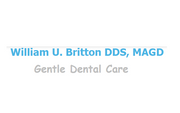
Also known as teeth grinding, bruxism is a common dental issue that can cause numerous problems without treatment. Many people unknowingly grind their teeth while asleep, while others grind their teeth during the day. While using a mouthguard can help mitigate this issue, here's what you should know about bruxism to help you take the best care of your teeth.
What Should You Know About Teeth Grinding
What causes bruxism?
Why teeth grinding occurs is still unknown to dental professionals, though various triggers are believed to play roles. Anger, nervous tension, and stress are cited as some of the main causes. Certain medications, such as the antidepressants paroxetine and fluoxetine, can cause teeth grinding side effects. Bruxism can also stem from pacifier use in childhood, as babies can continue moving their jaws in circular motions after they no longer use them.
What are the symptoms?

Common teeth grinding symptoms include awaking with jawbone, facial, and head pain, worn-down tooth enamel and increasingly sensitive teeth, and fractured or chipped teeth. Other symptoms include lockjaw and jaw dislocation, temporomandibular joint (TMJ) clicking or popping, interior cheek damage, and tongue indentations. Additionally, the jaw and facial muscles might feel tense.
Can you get an official teeth grinding diagnosis?
Dentists diagnose bruxism by looking for enamel erosion patterns on the teeth. They also inquire about symptoms, such as morning headaches and facial pain. Any stressors that could contribute to bruxism, like job and family-related anxiety, can also be discussed to determine what triggers the grinding actions.
How is bruxism treated?
Finding healthy ways to manage stress can help reduce bruxism symptoms, such as practicing deep breathing and meditation, exercising regularly, and spending time with friends. If the issue relates to a temporomandibular joint disorder, applying a warm compress to the jaw before bed helps the joints and muscles relax. Those with bruxism should avoid chewing gum, since it increases stress on the jaw muscles and encourages grinding actions. Wearing a custom mouthguard at night is another treatment that creates a protective barrier between the upper and lower teeth, which prevents further enamel wear and related symptoms.
If you need to be fitted for a mouthguard or schedule a dental appointment, contact William U. Britton, DDS, MAGD. This general dentistry practice with locations in Chillicothe and Jackson, OH, treats patients of all ages and provides custom mouthguards among many other services. Call (740) 772-2225 today to make an appointment or visit the dentist online for service information. Like the Facebook page for dental health and wellness tips.
About the Business
Have a question? Ask the experts!
Send your question

